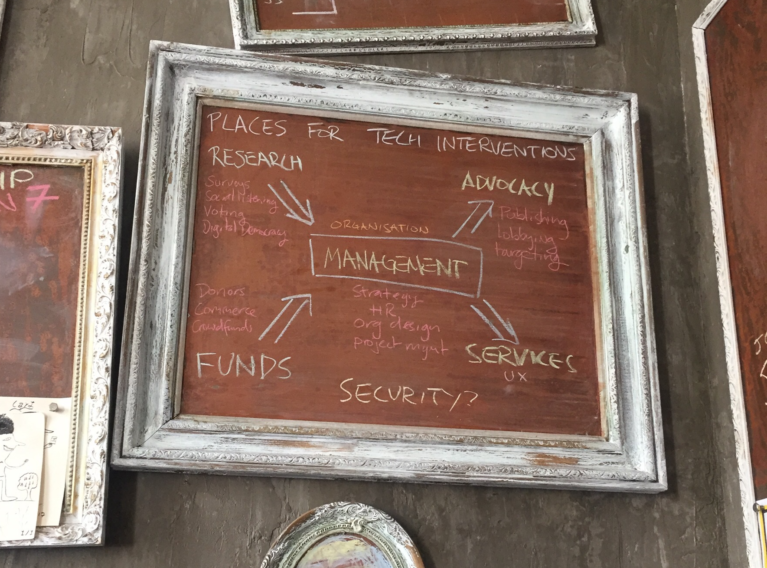(pic of the panel courtesy of Emma Hughes)
This morning I took part in a fascinating panel discussion about the intersections of art and technology – with a focus on theatre because it was hosted by the National Theatre of Scotland as part of this year’s Neon Festival in Dundee @NTSonline @weareneon.
A couple of dozen noble people came out on a chilly saturday morning to hear us think out loud about our practice, our concerns, and our dreams, and it was a pleasure to be there with Lizzie Hodgson @ThinkNat Mark Stevenson @Optimistontour Emma Hughes @LiminaImmersive Ruth Catlow @furtherfield and Annie Dorsen @AnnieDorsen, all chaired by NTS Digital Thinker in Residence Harry Wilson @theharry_wilson.
We each had five minutes to introduce our theme, and this is what I said in my attempt to keep the conversation lively. (yes, I’m quoting the Big Chill.. you can’t stop me)


